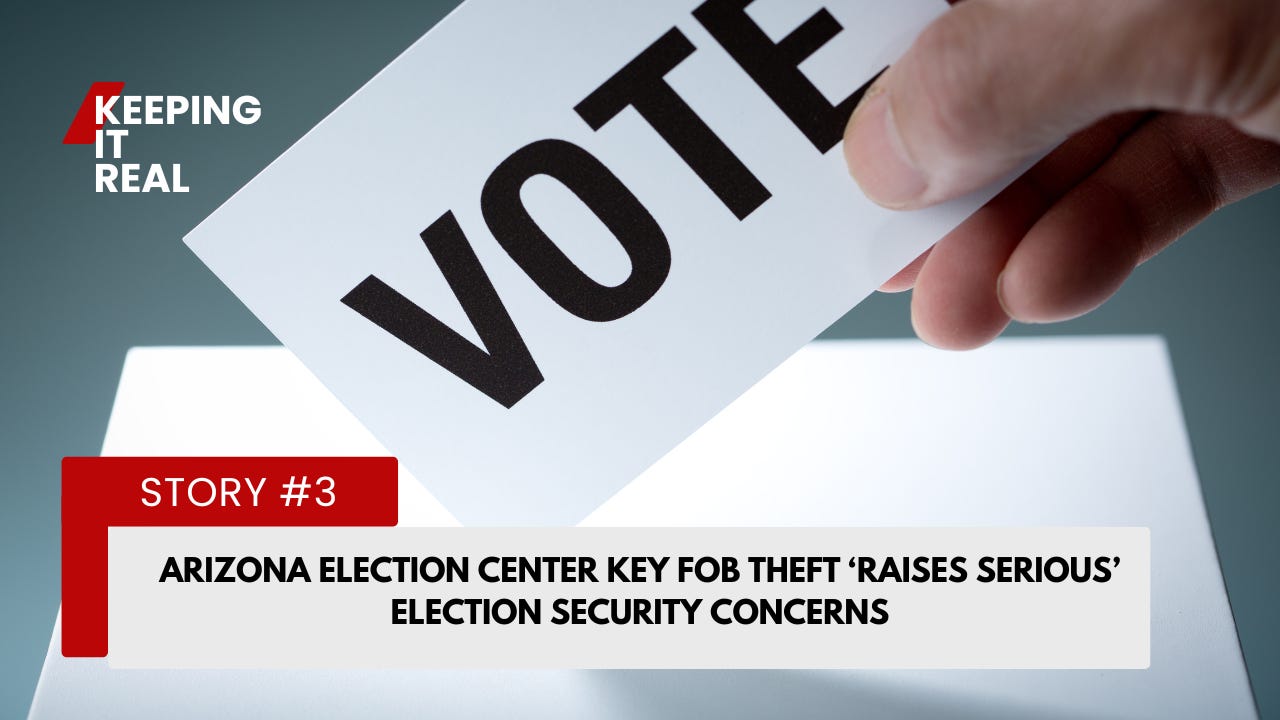I walked away from my job in the mainstream media after 25 years to go independent. Help me fight the narratives by becoming a paid subscriber. It’s $5 a month; you can quit at any time.


EL PASO, TX - New reporting indicates over 400 migrants have been brought to the U.S. by an Islamic State group-affiliated human smuggling network.
Over 150 of them have been arrested, but the whereabouts of over 50 migrants remain unknown, according to officials. Immigration and Customs Enforcement says it is looking to arrest them on immigration charges when they are found.
“Sometimes there’s no information on individuals. I mean, it’s quite common where there’s just nothing you have, there’s no criminal conviction, there’s no threatening information or whatever on these individuals or maybe these individuals are from an area that is of particular concern but that pops up later on when you get the information later,” ICE acting director Patrick Lechleitner said. Click here to read more.

The Department of the Interior published a guide to “inclusive language,” exclusively obtained by The Daily Wire, that tells bureaucrats to avoid gendered terms like “husband,” “son,” and “daughter,” and even instructs them to use the “they/them” pronouns for individuals rather than assume someone’s gender.
The 24-page document, called the U.S. Department of the Interior Inclusive Language Guide and published this month “for official use only,” details what terms bureaucrats should use or avoid when discussing gender and sexuality.
The guide includes a list of 104 different terms that the Interior recommends bureaucrats replace with alternate, approved words. “Husband” and “wife,” for example, should be replaced with “spouse, partner, significant other,” the federal agency says. “Daughter” and “son” should also be replaced with “child” or “kid” according to the guide, which even asks bureaucrats to replace “cockpit” with “flight deck.” Click here to learn more.

PHOENIX, AZ - Republican National Committee (RNC) Chairman Michael Whatley said a temporary election worker’s alleged theft of a “digital magnetic key” from the Maricopa County Tabulation and Election Center on Thursday “raises serious questions about election security in Arizona” that demand answers.
KTAR News noted that Walter Ringfield, 27, was arrested on “theft and criminal damage” charges after allegedly stealing the items. He was out of prison on probation for a previous felony charge when he allegedly committed the crime. According to court documents, Ringfield was captured on surveillance video walking past a desk and multiple tabulators just after 5 p.m. local time on June 20.
The surveillance video then shows Ringfield stopping at the desk, grabbing a lanyard with the security fob and keys attached, and placing them in his pocket, court documents say. Click here to read more.

DENMARK - Denmark will introduce the world’s first emissions tax on agriculture from 2030, requiring farmers to pay for greenhouse gases released by their cows, sheep and pigs.
The Danish government said the aim is to lower greenhouse gas emissions by 70 percent by 2030.
“We will take a big step closer in becoming climate neutral in 2045,” Taxation Minister Jeppe Bruus said. Bruus said he hoped other countries would follow suit and implement a similar tax. Click here to read more.

WASHINGTON D.C. - Anyone who has called the Internal Revenue Service knows it can be frustrating to get help. Taxpayers successfully reached a human about 31% of the time this tax season, according to the agency’s own taxpayer advocate.
Despite this, the IRS rated its service a score of 88%, up from a dismal 4% during the lows of the pandemic, when getting help at the agency was like winning the lottery. Erin Collins, head of the IRS’s Taxpayer Advocate Service, said Wednesday that while the improvement is notable, these high marks are nothing to brag about.
The IRS rating covers just 35 of its 102 customer-service numbers and doesn’t count the many callers who hang up in frustration or get sent to recorded messages, said Collins in her midyear report to Congress.
For the 2.1 million people who called the agency’s collections phone line, for instance, less than one-fifth reached a representative, with an average hold time of about 10 minutes, according to Collins’s report. There is also no information on what happens after the representative answers the phone or how often taxpayers’ issues are resolved. Click here to read more.




















